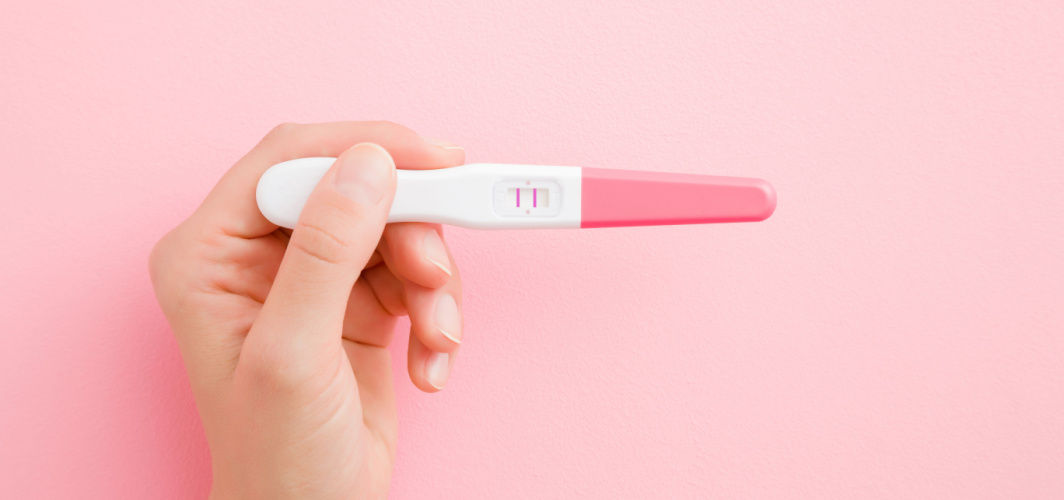Women's Wellness
Pregnancy: Are You At The Right Age To Conceive?
3 min read
By Apollo 24|7, Published on - 10 January 2023, Updated on - 22 May 2024
Share this article
0
0 like

If you are a woman in your mid-twenties or older, you may have heard or been told about how your reproductive clock is ticking. No matter how annoying this statement may sound, the thought of 'what the right age for pregnancy is' may have crossed your mind at least once.
Believe it or not, a woman can choose to conceive anytime between her menarche (the start of menstruation) till menopause (the permanent cessation of menstruation). However, these two extreme ends of the spectrum are usually not considered the right time to conceive. Let's decode more about it in this article!
Age and Fertility: Here Is What You Should Know!
There is extensive research on the most optimum age when a woman should conceive. Studies have shown that fertility declines as you grow older, which makes it difficult for women to conceive. There is ample proven literature that states that a woman conceiving too early or too late in her reproductive age can have a serious impact on her health and that of her children.
But what happens with age?
Women are born with a fixed number of eggs in their ovaries. A woman from her first menstrual cycle to menopause will lose a few eggs each month. As per estimates, a healthy woman would have around 25,000 eggs by the time she turns 37 and just 1,000 as she touches her early 50s.
Besides the decreasing egg count, increasing age also puts you at risk of developing other gynaecological conditions like endometriosis, tubal disease and ovarian cysts, which can make conceiving difficult.
What is the Right Age to Conceive?
Based on experts, healthcare professionals and the vast body of proven research, the right age to conceive is in the late 20s and early 30s.
While there is no minimum age for pregnancy, delaying pregnancy till you are in your late 20s offers several benefits as follows:
- You are more likely to become financially secure
- Age brings wisdom and patience
- You are more likely to offer a stable environment to your child
Moreover, it has also been proven in several studies that teenage pregnancies may result in health risks for a mother and her baby and, therefore, are not recommended.
At the same time, pregnancy at an advanced age (>35 years) comes with its risks such as:
- A tendency for developing gestational diabetes
- High blood pressure and preeclampsia
- Miscarriage
- Preterm birth
- Stillbirth
When Is the Right Time to Consult Your Doctor About Conceiving?
As fertility issues are becoming common, you must consult your gynaecologist before you plan a baby. For those suffering from fertility issues, advanced technology and treatments like intrauterine insemination (IUI) and in vitro fertilisation (IVF) can help overcome the challenges that may be faced while trying for a baby.
If you are in your mid-twenties or older and facing difficulties in conceiving, visiting a fertility expert is highly recommended.
FAQs
1. How does ageing affect egg count?
As a woman grows older, her egg count decreases. By the time she reaches menopause, she will be left with little to no eggs, indicating the end of her reproductive age. At the same time, older women are more likely to have eggs with chromosomal abnormalities and uterine issues that may make conceiving difficult.
2. What kind of risks may occur if I conceive late?
Women who conceive later in life, especially after 35 years, are at high risk of developing conditions like gestational diabetes, hypertension and preeclampsia.
3. Is the late 30s a good time to conceive?
Women conceiving in their late 30s are at increased risk for pregnancy complications, preterm birth, and foetal abnormalities.
4. Are there ways to preserve fertility?
With advances in fertility medicine, women can preserve their eggs earlier in life and use them when they are ready to embrace motherhood. Ask your fertility specialist for more information.
Consult An Apollo Gynaecologist
Medically reviewed by Dr Sonia Bhatt.
Leave Comment
Recommended for you

Women's Wellness
Happy Mother’s Day: Give Your Mom The Gift Of Health With These Nutrients
Women undergo several physical and hormonal transitions throughout their life, which increases their demands for certain nutrients. Read here to know what those essential nutrients are.

Women's Wellness
Foods To Avoid During Your Period
Period pain is extremely common. While it is a normal phenomenon, it can be unbearable at times. Read to know about certain foods that are best avoided during the menstrual cycle.

Women's Wellness
Eating Disorders: Why Women Are More Affected
If not diagnosed or treated, eating disorders can cause severe damage to the digestive system, heart, bones, teeth, and other vital organs.
Subscribe
Sign up for our free Health Library Daily Newsletter
Get doctor-approved health tips, news, and more.
Recommended for you

Women's Wellness
Happy Mother’s Day: Give Your Mom The Gift Of Health With These Nutrients
Women undergo several physical and hormonal transitions throughout their life, which increases their demands for certain nutrients. Read here to know what those essential nutrients are.

Women's Wellness
Foods To Avoid During Your Period
Period pain is extremely common. While it is a normal phenomenon, it can be unbearable at times. Read to know about certain foods that are best avoided during the menstrual cycle.

Women's Wellness
Eating Disorders: Why Women Are More Affected
If not diagnosed or treated, eating disorders can cause severe damage to the digestive system, heart, bones, teeth, and other vital organs.